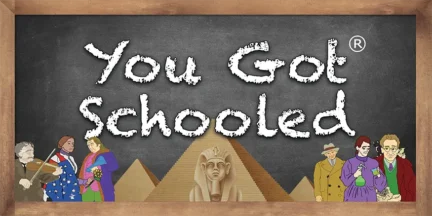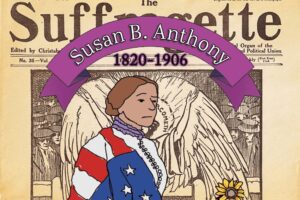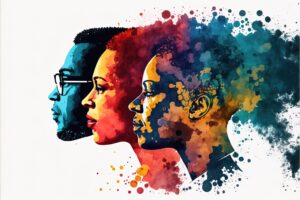Maria Weston Chapman: A Trailblazing Abolitionist and Advocate for Women’s Rights

The annals of history are adorned with the names of fearless individuals who, through their unwavering commitment to justice and equality, have left an indelible mark on society. One such remarkable figure is Maria Weston Chapman, a prominent 19th-century American abolitionist and women’s rights advocate. Her tireless efforts in the fight against slavery and her pioneering work for women’s rights serve as a testament to her enduring legacy.
Early Life and Education
Maria Weston Chapman was born on July 25, 1806, in Weymouth, Massachusetts, into a family deeply committed to the abolitionist cause. Her father, Warren Weston, was a fervent abolitionist, and her mother, Deborah Kilham Weston, provided her with a strong foundation of progressive values. This nurturing environment, coupled with her access to education, laid the groundwork for Maria’s future activism.
Championing the Abolitionist Cause
Maria Weston Chapman’s journey into activism began with her association with the Female Anti-Slavery Society of Boston. In 1832, she joined this organization and became deeply involved in the abolitionist movement. Her passionate commitment to the cause led her to become the editor of the “Non-Resistant,” an anti-slavery newspaper. She used this platform to advocate for immediate abolition and women’s rights, firmly believing that the two causes were intrinsically linked.
One of Maria’s most significant contributions was her work with the Boston Female Anti-Slavery Society. As a founding member, she played a pivotal role in organizing anti-slavery fairs, raising funds for the cause, and speaking out against slavery. She was instrumental in establishing the Anti-Slavery Fair Store, which sold anti-slavery publications and products to support the movement.






Maria Weston Chapman and the Grimké Sisters
The connection between Maria Weston Chapman and the Grimké sisters, Angelina and Sarah, is an essential chapter in her story. The Grimké sisters were known for their abolitionist and feminist writings, and they collaborated with Maria to create a powerful force for change. Together, they organized the first national anti-slavery fair, the proceeds of which contributed significantly to the abolitionist movement.
Maria’s work extended beyond the borders of the United States. She was a key figure in the “Letter from American Women,” a powerful declaration of solidarity with British women who were fighting against the slave trade. This letter, signed by many prominent American women, was instrumental in garnering international support for the abolitionist movement.
Pioneering Work in Women’s Rights
Maria Weston Chapman’s activism wasn’t confined to abolitionism; she was also a trailblazer in the women’s rights movement. She recognized that women’s rights and the abolition of slavery were intertwined struggles for human rights and equality. Her work in this arena included organizing the first national women’s rights convention in 1850, an event that laid the groundwork for future women’s rights gatherings.
Chapman’s influence and advocacy for women’s rights extended to her writings as well. Her 1838 essay, “A Plea for the Oppressed,” not only condemned the institution of slavery but also highlighted the oppression of women, calling for both movements to work together for social reform.
Legacy and Conclusion
Maria Weston Chapman’s life was marked by an unswerving dedication to the abolition of slavery and the fight for women’s rights. Her tireless activism, writing, and organizational skills helped shape these movements and paved the way for future activists.
While she faced resistance and criticism during her lifetime, her efforts did not go in vain. Maria Weston Chapman’s commitment to justice, equality, and human rights serves as a source of inspiration for generations to come. Her legacy reminds us of the power of dedicated individuals who can make a profound impact on the world by advocating for what is right.
Share via:



